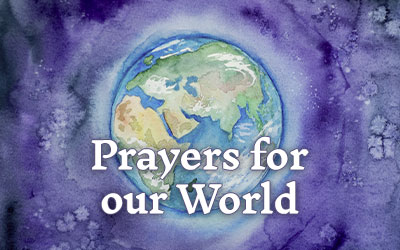China: Covid controls eased following protests

Hospitals in China appear to be filling up amid concerns about a fresh Covid-19 wave hitting the country, the World Health Organization (WHO) says. Dr Michael Ryan says intensive care units (ICU) are busy despite officials saying numbers are "relatively low". In recent days hospitals in Beijing and other cities have been filling up as the latest Covid surge hits China.
Since 2020, China has imposed strict health restrictions as part of its zero Covid policy.
But, the government ended most of those measures two weeks ago after landmark protests against the strict controls.
In a significant easing of Covid controls, the Chinese government said that people will no longer need to show negative virus tests or health codes in order to travel between different parts of the country. Chinese authorities also said that unless an area is designated as high-risk, work and local production cannot be stopped.
In an example of how strict Covid controls had become in mainland China, the capital city of Beijing this year increasingly required people to scan a health code with a smartphone app in order to enter public venues. The health code then had to show a negative virus test result from within the last two or three days. If the health code decided the user had come into contact with an infection or Covid risk area, the app would show a pop-up window, making it impossible for the person to enter public areas, or board a train or airplane until the pop-up was resolved. The capital city relaxed its health code scanning requirements on Tuesday.
Despite a national easing in Covid measures in mid-November, a surge of infections and the ensuing local implementation of China’s stringent zero-Covid policy added to people’s frustration with the controls. Students and groups of people held public protests during the last weekend of November. The unrest was triggered by a fire in a high-rise block in the western Xinjiang region that killed 10 people last week. Many Chinese believe long-running Covid restrictions in the city contributed to the deaths, although the authorities deny this.
It led to days of widespread protests across various cities, which have since ebbed amid a heavy police presence. Thousands of Chinese in more than 20 cities took to the streets beginning on November 25, frustrated by lengthy COVID-19 lockdowns, widespread testing and other restrictions placed on people's movements. It was one of the largest acts of public dissent in China in decades.
While most of the protesters focused their anger on the government's COVID-19 policies, some also demanded the resignation of President Xi Jinping. The government considers such speech subversive. Though government officials did not publicly mention the protesters, they suggested easing restrictions within days of the first protests to head off any more demonstrations. Videos of protesters across the country captured demonstrators raising blank sheets of paper, a quiet show of dissent and a tactic used to evade censorship and prosecution.
Pray: From Premier Christian News
Almighty God,
May you bless all who are persecuted and under threat.
We pray for an end to the unrest in China, Iran and other parts of the world.
May those who do not know you, come to follow you and your example of love and hope.
In Jesus' name, Amen.

